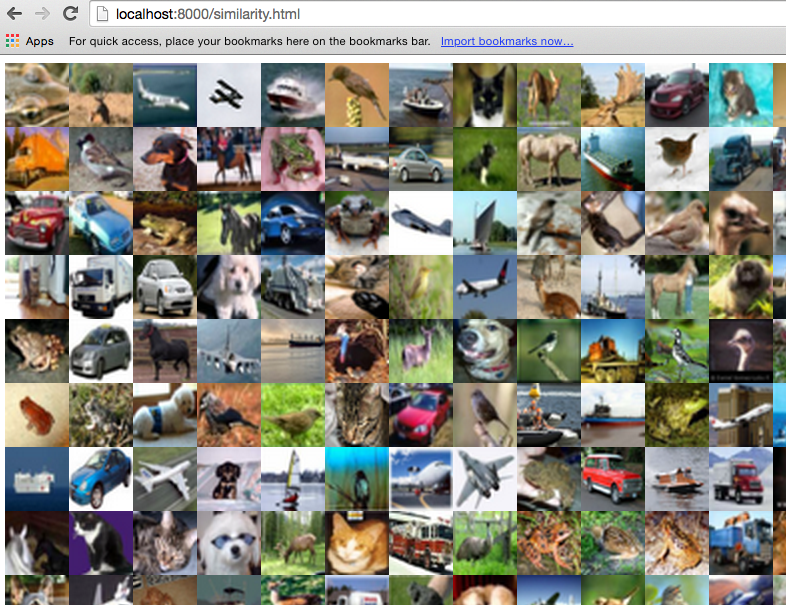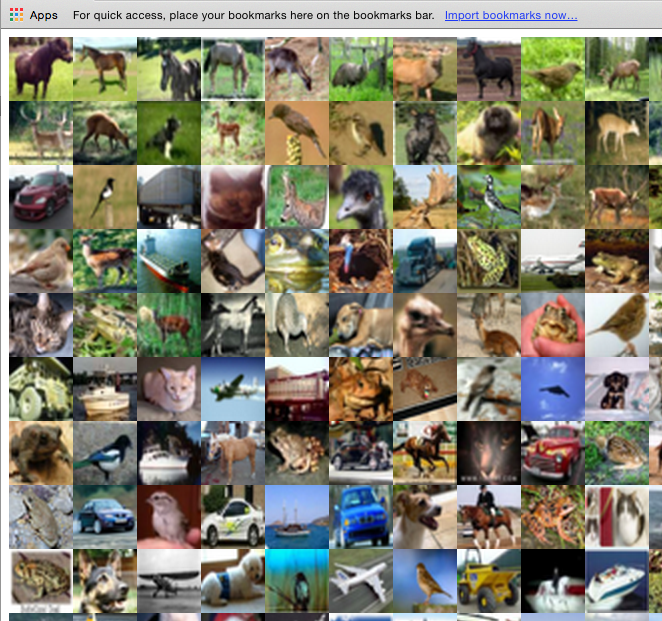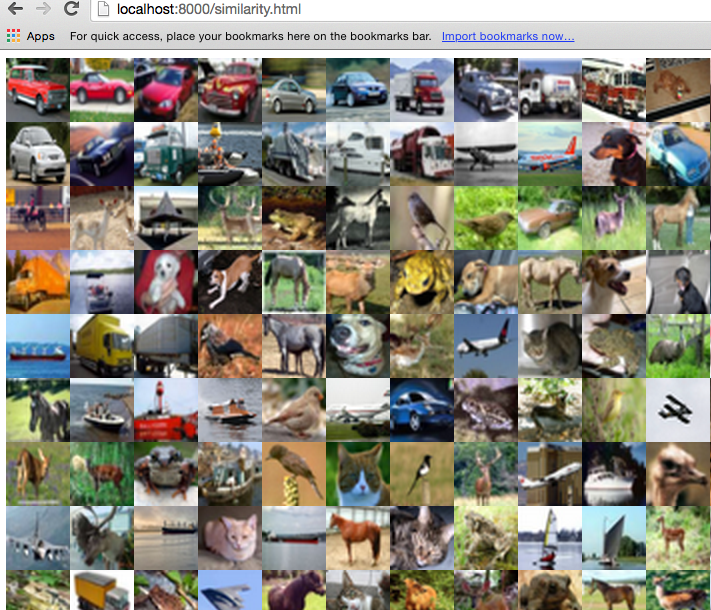This demo uses the Indico image_features API to sort images based on similarity.
Clone the repo:
git clone https://github.com/IndicoDataSolutions/ImageSimilarity.git
Fire up your test server using SimpleHTTPServer (or equivalent):
cd ImageSimilarity && python -m SimpleHTTPServer
See the demo at localhost:8000/similarity.html!
Click on any image to trigger sorting based on similarity to that image.
The initial view will look something like this:
Clicking on one of the more brownish images triggers a resort. Limiting the data to ten images, the result looks something like so, with the target item first:
Similar for the clicking one of the bluer items:
Loading the full 250 image set, you can truly experience the power of the Indico API.
Click on a horse to sort by general horseyness. Note that it recognizes a brown horse on brown background even though the initial image was mostly green:
Or a car to sort by similarity to automobile-shaped items:
Take a look at process.py, the file where the magic happens. It's pretty short.
from scipy.misc import imsave, imread
from indicoio import image_features
import json
# Compute image features for all images and save to json.
features = []
for i in range(250): # there are 250 items in the default dataset
img = imread('imgs/%s.png'%i)
features.append(image_features(img)) # magic happens here!
json.dump(features, open('features.json', 'wb'))
The application sends the images in the img file to the Indico image_features API, which returns a JSON of abstract features describing the image.
similarity.js orders these features by Euclidean distance from a target image (the one you click on in the UI), and the nifty Isotope library displays and animates the sorting process.




